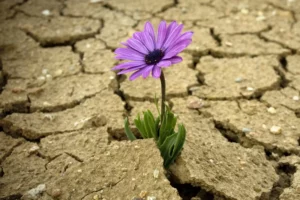Happiness, a state of well-being and contentment, is a goal that many of us strive to achieve. While the pursuit of happiness can seem like a complex and daunting task, research and wisdom from various cultures around the world suggest that it is attainable through a combination of practices, mindset shifts, and lifestyle adjustments. In this blog, we outline strategies and principles on how to be happier, emphasizing the importance of gratitude, connection, purpose, and self-care.
Gratitude is the quality of being thankful and the readiness to show appreciation for and to return kindness. Cultivating a sense of gratitude can significantly enhance happiness by shifting focus from what is lacking to what is abundantly present. Keeping a gratitude journal, where you regularly write down things for which you’re thankful, can help cultivate this mindset. This practice encourages a positive focus and can transform our perception of our daily lives.
Human beings are inherently social creatures, and strong relationships are foundational to our happiness. Building and maintaining deep connections with family, friends, and community not only provides emotional support but also contributes to a sense of belonging and love. Prioritizing quality time with loved ones, engaging in active listening, and expressing appreciation and affection can strengthen these bonds, leading to increased happiness.

Having a sense of purpose is closely linked to happiness. This involves engaging in activities that are meaningful and align with personal values. Finding purpose can come from professional pursuits, hobbies, volunteer work, or any activity that provides a sense of contribution to something greater than oneself. Engaging in purposeful activities provides fulfillment and a sense of achievement, which are vital components of happiness.
Physical well-being is intrinsically connected to mental and emotional health. Regular exercise, a nutritious diet, adequate sleep, and mindfulness practices are essential for maintaining balance and happiness. Exercise, in particular, releases endorphins, which have mood-boosting effects. Additionally, practices such as meditation and mindfulness can enhance emotional regulation and reduce stress, contributing to a happier state of being.
- Embrace Positivity and Resilience
Adopting a positive outlook and developing resilience in the face of challenges are crucial for sustained happiness. This involves focusing on solutions rather than problems, learning from setbacks, and viewing challenges as opportunities for growth. Cultivating a mindset of optimism and resilience can help navigate life’s ups and downs more effectively, leading to a more sustained sense of happiness.

- Limit Comparison and Cultivate Contentment
The tendency to compare oneself with others can be a significant barrier to happiness. Social media often exacerbates this issue by presenting idealized versions of others’ lives. It is essential to recognize that each person’s journey is unique and to focus on personal growth and achievements. Cultivating contentment with one’s circumstances, while striving for personal goals, can lead to a more peaceful and happier life.

Happiness is not a distant or unattainable goal; it is a state of being that can be cultivated through deliberate practice and mindset shifts. By embracing gratitude, fostering connections, finding purpose, practicing self-care, adopting a positive outlook, and cultivating contentment, individuals can enhance their well-being and lead happier lives. It’s important to remember that happiness is a journey, not a destination, and small daily actions can lead to significant improvements in overall happiness.
